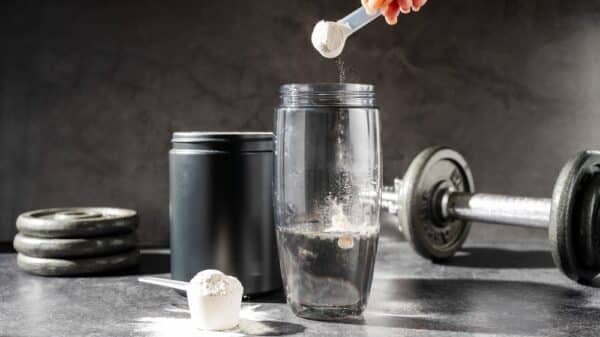In addition to enhancing your daily protein intake, cottage cheese provides other essential nutrients worth noting, such as calcium, B vitamins, and phosphorus—which promote bone, cellular, and metabolic health, according to the U.S. Department of Agriculture (USDA). But is cottage cheese beneficial for gut health? Here’s what our experts have to share. (Spoiler alert: It’s encouraging news.)
Is cottage cheese actually beneficial for gut health?
When queried about the impact of cottage cheese on gut health, a gastroenterologist along with two registered dietitians unanimously concurred that the popular cheese can be a wise selection, depending on the type.
“Cottage cheese can be good for gut health because it is generally seen as a fermented dairy product, akin to yogurt,” states Wendi LeBrett, MD, a gastroenterologist and educator. However, it’s important to note that not all cottage cheese brands provide the same gut health advantages. Some varieties lack culturing or fermentation. “Cottage cheese that is cultured—look for labels indicating ‘contains live and active cultures’—is an excellent choice for promoting gut health, as it contains live bacteria, or probiotics,” Russell-Murray adds.
Probiotics are essential for a gut-healthy diet as they foster the growth of beneficial microorganisms in the gut microbiome—a diverse ecosystem of trillions of microorganisms primarily residing in the colon. This community of bacteria enhances overall gut health by promoting regular digestion and alleviating issues like gas, bloating, diarrhea, and constipation. Moreover, emerging studies suggest a broader influence on overall body health, including supporting immune, cardiovascular, and even brain health.
In addition, scientific studies affirm that fermented dairy can have a positive effect on the gut microbiome. For instance, a 2020 systematic review compiling numerous studies published inA study published in Gut Microbes revealed that the intake of milk, yogurt, and kefir promoted the growth of two beneficial bacteria strains across three different studies. In addition, a 2023 review in Food Research International indicated that consuming organic dairy might assist in regulating gut inflammation.
How much should you consume?
We’ve discovered that cottage cheese can be beneficial for gut health. But what is the appropriate daily amount to experience these benefits?
As of now, there is no specific recommendation for the intake of fermented foods or cultured dairy from the U.S. Department of Agriculture, which publishes the U.S. Dietary Guidelines for Americans every five years. Still, experts have provided some advice.
According to Russell-Murray, “Research indicates that a relatively substantial and consistent intake of fermented food is necessary to create a notable improvement in gut health.” The referenced study showed that people consuming between four and six servings of fermented foods daily significantly enhanced microbiota diversity and reduced bodily inflammation.
Russell-Murray adds, “It’s important to note that even less frequent consumption can still yield positive effects. Overall, I recommend regular intake of all fermented options as they are tasty choices that may aid gut health.”
Fortunately, what constitutes regular consumption varies based on individual preferences and needs. Dr. LeBrett suggests aiming for three to five servings of probiotic-rich foods weekly, which may include cottage cheese, yogurt, sauerkraut, kimchi, and miso. Additionally, Amy Davis, RDN, of Amy Davis Nutrition mentions that “around half to one cup of probiotic-rich cottage cheese daily can offer gut health advantages, though individual needs can differ.” For personalized recommendations, consulting with your healthcare provider and collaborating with a registered dietitian is advisable.
Are there potential side effects?
While cottage cheese can promote gut health, it may not be suitable for everyone. A 2020 study published in Nutrients showed that while a high-dairy diet of more than four servings daily had a more positive effect on gut microbes compared to a low-dairy diet of less than one serving, those consuming a dairy-rich diet reported higher instances of constipation. This raises a significant concern regarding cottage cheese consumption.
“It’s crucial to remember that a large segment of the population experiences at least mild lactose intolerance and may find it hard to handle substantial amounts of lactose,” Russell-Murray explains. For context, lactose intolerance affects the ability to digest lactose, a naturally occurring sugar in dairy products. Symptoms of lactose intolerance can range from mild gas and bloating to more severe symptoms like diarrhea and constipation.
“Some cottage cheese brands may also include gums, thickeners, or carrageenan, which could negatively affect gut health by causing inflammation or disturbing the gut barrier, though more research is needed to ascertain the long-term ramifications of these ingredients,” Davis notes.
If the taste of cottage cheese with probiotics doesn’t appeal to you, consider other fermented foods like yogurt, kimchi, kefir, miso, tempeh, kombucha, buttermilk, sauerkraut, or certain varieties of pickles to enhance your gut health.
8 creative ways to enjoy cottage cheese
If you can tolerate dairy and enjoy cottage cheese, here are some delightful ways to incorporate it into your meals:
Soups
If you’re a fan of creamy soups, try swapping out half-and-half, heavy cream, or sour cream with cultured cottage cheese in your recipes. “Adding a dollop of cottage cheese to soups gives a creamy probiotic boost,” says Davis, making it an ideal tangy garnish as well.
Smoothies
Incorporating cottage cheese into your morning or post-workout smoothie is an excellent method to enhance the nutritional profile of this healthy drink. “Blending it into smoothies creates a quick, high-protein snack,” notes Russell-Murray.
Toppings Blended Together
Dr. LeBrett remarks, “I enjoy blending cottage cheese to improve the texture. I like mine with a drizzle of honey and a sprinkle of walnuts.” You can also top blended cottage cheese with chili crisp, diced vegetables, or leftover tomato sauce for a savory treat. You can easily transform these recipes into filling parfaits, as “cottage cheese is a fantastic base for both sweet and savory parfaits,” adds Davis.
Scrambled Eggs
While eggs are a staple protein source for many, you can boost their nutritional value and gain the gut health benefits of probiotics by mixing in cottage cheese during your morning scramble. “I find the texture of cottage cheese challenging, so I prefer to blend it into foods like scrambled eggs,” Russell-Murray shares.
Pancakes
Pancakes can also gain from the addition of cottage cheese enriched with probiotics. “I love to make cottage cheese pancakes to boost the protein content of my breakfast,” Dr. LeBrett shares. If the texture of cottage cheese curds is acceptable to you, mix in a spoon or two directly into your batter. Alternatively, if you prefer a smoother consistency, you can blend all of your ingredients together.
Dips
Davis frequently utilizes cottage cheese as a nutritious dip alternative. “It can be blended with fresh herbs, garlic, onion, and thyme for a high-protein ranch dip,” she notes. This preparation is simply *chef’s kiss* when enjoyed with your preferred chips, crackers, or fresh vegetables.
Overnight oats
Overnight oats make for a convenient and delicious breakfast that can be prepared in advance, especially when you have to rush out in the morning. Plus, it just so happens that adding our favorite cottage cheese enhances its nutritional value. “I often incorporate blended cottage cheese into my overnight oats,” Dr. LeBrett explains.
Creamy tomato sauce
Cottage cheese can also replace half-and-half, heavy cream, mascarpone, or sour cream in tomato sauce recipes. “Incorporating it into tomato sauce results in a rich and creamy blush sauce,” says Russell-Murray.
The Final Takeaway
Ultimately, cottage cheese can be a wise choice for gut health, depending on the specific kind you select. “To make sure you’re obtaining gut health-promoting probiotics from your cottage cheese, look for ‘live and active cultures’ on the packaging,” Davis emphasizes. Additionally, it’s a bonus that this versatile and budget-friendly dairy product can be used in a multitude of delicious recipes.
Nonetheless, it is essential to not solely concentrate on cottage cheese and other probiotic-rich foods when trying to enhance gut health. “It’s vital to balance cottage cheese with a diet that is abundant in plant-based fiber and prebiotics, which can be found in fruits, vegetables, beans, nuts, and seeds,” Dr. LeBrett advises.
Fiber and prebiotics (a specific type of fiber) feed the beneficial bacteria already residing in your gut microbiome (as well as any that you introduce through probiotics), allowing the entire system to flourish. Moreover, brightly colored fruits and vegetables, along with other antioxidant-rich foods like legumes, nuts, and seeds, contribute to reducing inflammation throughout the body and microbiome, making them excellent choices for gut health.
Image Source: Kabachki.photo / Shutterstock

































